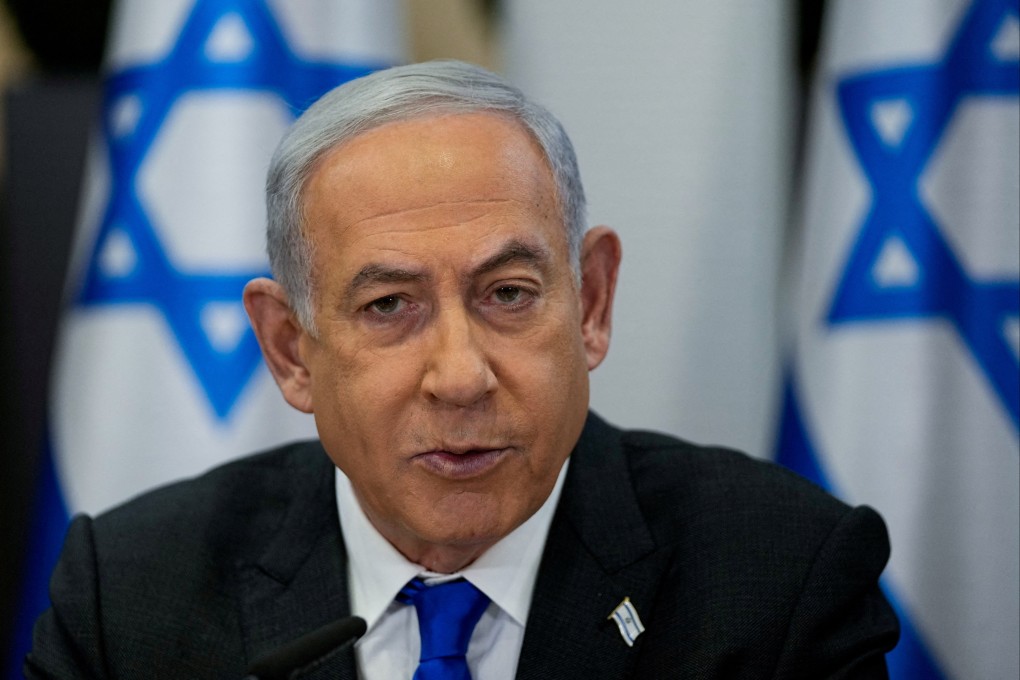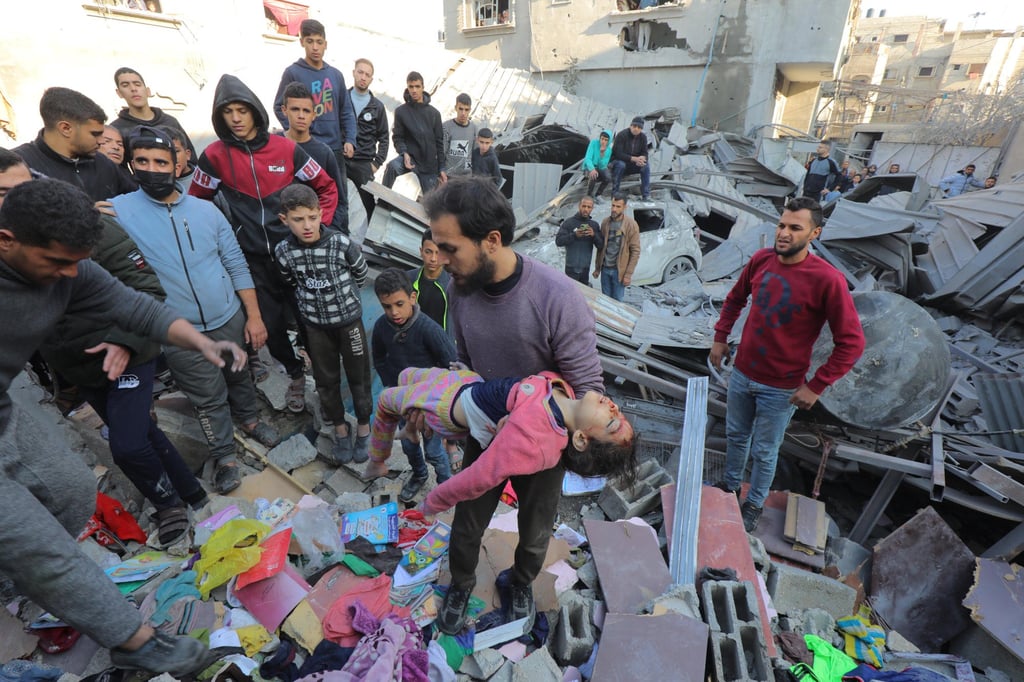Netanyahu: Gaza-Egypt border zone should be under Israeli control
- ‘The Philadelphi Corridor – or to put it more correctly, the southern stoppage point (of Gaza) – must be in our hands. It must be shut,’ Netanyahu said
- The Israeli prime minister predicted the war in Gaza and on other regional fronts would last many more months

The border zone between the Gaza and Egypt should be under Israel’s control, Israeli Prime Minister Benjamin Netanyahu said on Saturday as he predicted the war in the Palestinian enclave and on other regional fronts would last many more months.
Netanyahu held a news conference as Israel entered the 13th week of its war against Gaza’s ruling Hamas Islamists, which has stoked violence in the occupied West Bank and touched off attacks by Iran-backed groups in Lebanon, Syria, Iraq and Yemen.
“The Philadelphi Corridor – or to put it more correctly, the southern stoppage point (of Gaza) – must be in our hands. It must be shut. It is clear that any other arrangement would not ensure the demilitarisation that we seek,” he said.
Israel has said it intends to destroy Hamas in Gaza and demilitarise and deradicalise the territory to prevent any repeat of the October 7 cross-border killing and kidnapping spree by the Palestinians militant group that sparked the war.
“The war is at its height. We are fighting on all of the fronts. Achieving victory will require time. As the (IDF) chief of staff has said, the war will continue for many more months,” Netanyahu said.
He added a rare threat to attack Iran directly over the near-daily exchanges of fire across the Israel-Lebanon border. “If Hezbollah expands the warfare, it will suffer blows that it has not dreamed of – and so too Iran,” Netanyahu said without elaborating.
Also on Saturday, Netanyahu thanked the Biden administration for its continued backing, including approval for a new emergency weapons sale, the second this month, and prevention of a UN Security Council resolution seeking an immediate ceasefire. Israel argues that ending the war now would mean victory for Hamas, a stance shared by the Biden administration, which at the same time urged Israel to do more to avoid harm to Palestinian civilians.
